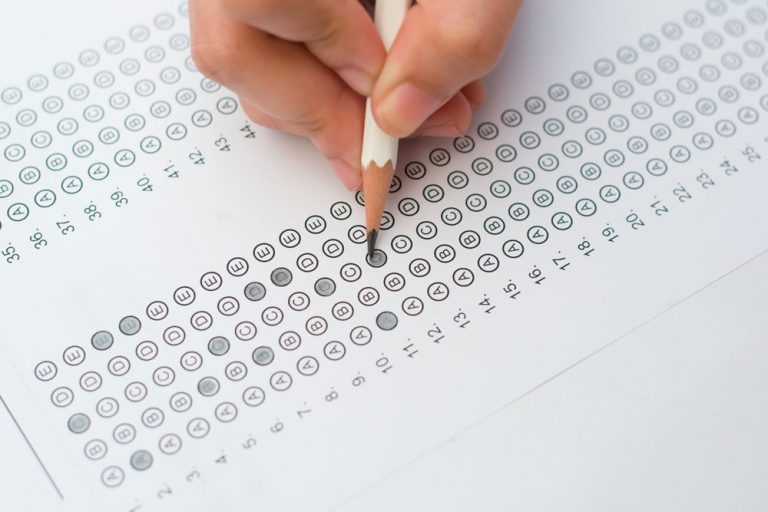

By Brian Lopez
After the COVID-19 pandemic’s education disruptions caused Texas students’ standardized test scores to drop, their performance is beginning to turn around toward pre-pandemic levels in three subject areas, according to test results released Thursday by the Texas Education Agency.
But their scores across the board remain lower than they were before the pandemic.
The agency released scores for high school students who took the State of Texas Assessments of Academic Readiness this spring. High school students take these exams to graduate. They include subjects such as Algebra I, English I, English II, Biology, and U.S History.
Students improved in three tests that saw declines in 2021 due to the pandemic. In Algebra 1, 46% of students met grade level, a 5-percentage-point increase from spring 2021, but it’s still a 16-point decrease from spring 2019.
In Biology, 57% of students met grade level, a 3-point increase from spring 2021. But it’s still 6 points off from spring 2019 levels. In U.S. History, 71% of students met grade level this spring, a 2-point increase from spring 2021 but still 4 points off from spring 2019 results.
The agency released results for two other high school subjects, English I and II, but those results have remained largely the same. In English I, 49% of students met grade level in 2019, and that number is at 48% for this year. In English II, scores went up from 2019. In 2019, 51% of students met grade level, and that number rose to 57% in 2022.
Texas students in third through 12th grade take the STAAR tests, and the results for grades 3-8 will be released on June 24.
“These results provide encouraging evidence that the academic recovery plans adopted by the Texas Legislature and implemented by our state’s 370,000 dedicated teachers are working for our students,” Texas Education Agency Commissioner Mike Morath said in the press release. “We have made some progress to date, but there is still work to be done to fully recover from the academic effects of the COVID slide.”
The early signs of improvement come as educators feared that the effects of the ongoing pandemic could again negatively impact scores as schools dealt with the delta and omicron waves this past school year. These results also come as Texas public schools will be rated based on how students score on the STAAR for the first time since the pandemic began.
STAAR was canceled in 2020 but brought back in 2021, and it showed students who did most of their schooling remotely suffering “significant declines.”
In the press release, Morath credited House Bill 4545 with helping students get back on track. The measure, which the Texas Legislature passed last year, required schools to offer students 30 hours of targeted instruction based on how many STAAR subjects a student failed in spring 2021.
Not everyone was a fan of the legislation. Some said it’s the best way to support children that struggled over the pandemic, while others feel it was just another burden put on schools that are already struggling with getting teachers in a classroom.
This story was originally published by the Texas Tribune.
The San Marcos City Council received a presentation on the Sidewalk Maintenance and Gap Infill…
The San Marcos River Rollers have skated through obstacles after taking a two-year break during…
San Marcos Corridor News has been reporting on the incredible communities in the Hays County…
Visitors won't be able to swim in the crystal clear waters of the Jacobs Well Natural…
Looking to adopt or foster animals from the local shelter? Here are the San Marcos…
The Lone Star State leads the nation in labor-related accidents and especially workplace deaths and…
This website uses cookies.